With this guide, I will reveal Toyota Carolla’s best and worst years, revealing when to buy and when to avoid.
My research and analysis of Corolla’s journey from 1998 to present was based on reliable sources such as NHTSA, Consumer Reports, and VehicleHistory.
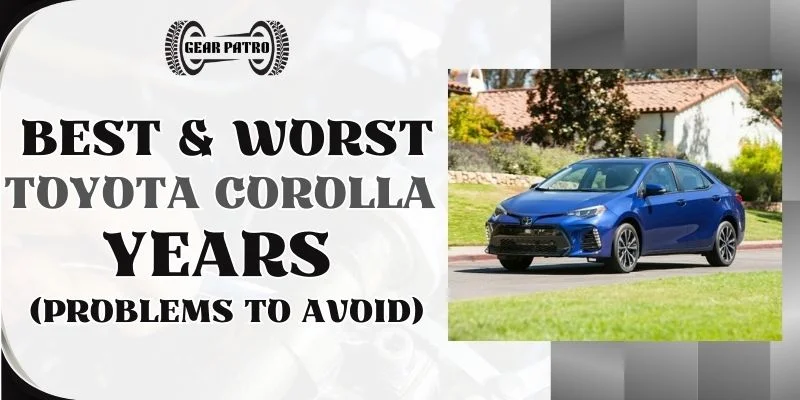
We will explore each generation, provide insights into performance, technological advancements, resale value, and analyze Toyota Carolla’s common problems.
Let’s get started!
Toyota Corolla Generations
A journey began with the introduction of the Toyota Corolla in 1966. With its fuel efficiency, affordability, and reliability, it quickly became Toyota’s compact car offering. A 1.1-liter engine was featured in the first model, which was designed to meet the needs of the average consumer.
From 1998 to the present, the Toyota Corolla has appeared in the following generations:
| Generation | Years |
| 8th generation (E110) | 1998-2002 |
| 9th generation (E120/E130) | 2003-2008 |
| 10th generation (E140/E150) | 2009-2013 |
| 11th generation (E170) | 2014-2019 |
| 12th generation (E210) | 2020-Present |
Design, technology, and performance have changed dramatically over the decades. It is crucial to highlight these distinctions, as generational differences can play a significant role in the purchase decision.
Toyota Corolla Best, Neutral, and Worst Years
Various factors are taken into consideration when classifying the best and worst model years of the Toyota Corolla. The following are among them:
This visual representation provides a comprehensive overview of ratings from the aforementioned sources.
Based on the data gathered, I have categorized all Toyota Corolla model years into three categories: best, neutral, and worst.
| Generation | Best Years | Neutral Years | Worst Years |
| 8th generation (E110) | 2000 2001 2002 | N/A | 1998 1999 |
| 9th generation (E120/E130) | 2007 2008 | 2005 | 2003 2004 2006 |
| 10th generation (E140/E150) | 2012 2013 | 2011 | 2009 2010 |
| 11th generation (E170) | 2016 2017 2018 2019 | 2015 | 2014 |
| 12th generation (E210) | 2021 2022 2023 2024 | N/A | 2020 |
Model years considered “neutral” are those that did not excel remarkably or falter significantly. Neither of them were exceptionally good or bad, but they offered a balance of qualities.
Recalls issued by the NHTSA play a crucial role. Our classifications are influenced by the number of complaints and recalls, which indicate a reduced level of reliability.
We’ll examine the Toyota Carolla’s best, neutral, and worst years.
Best & Worst Years for Toyota Corolla 8th Generation (1998-2002)
Toyota’s eighth generation of the Corolla, launched in 1998, reinforced the company’s reputation for reliability, efficiency, and affordability.
During the eighth generation, Toyota Carolla’s best years were between 2000 and 2002, while Toyota Corolla’s worst years were 1998 and 1999.
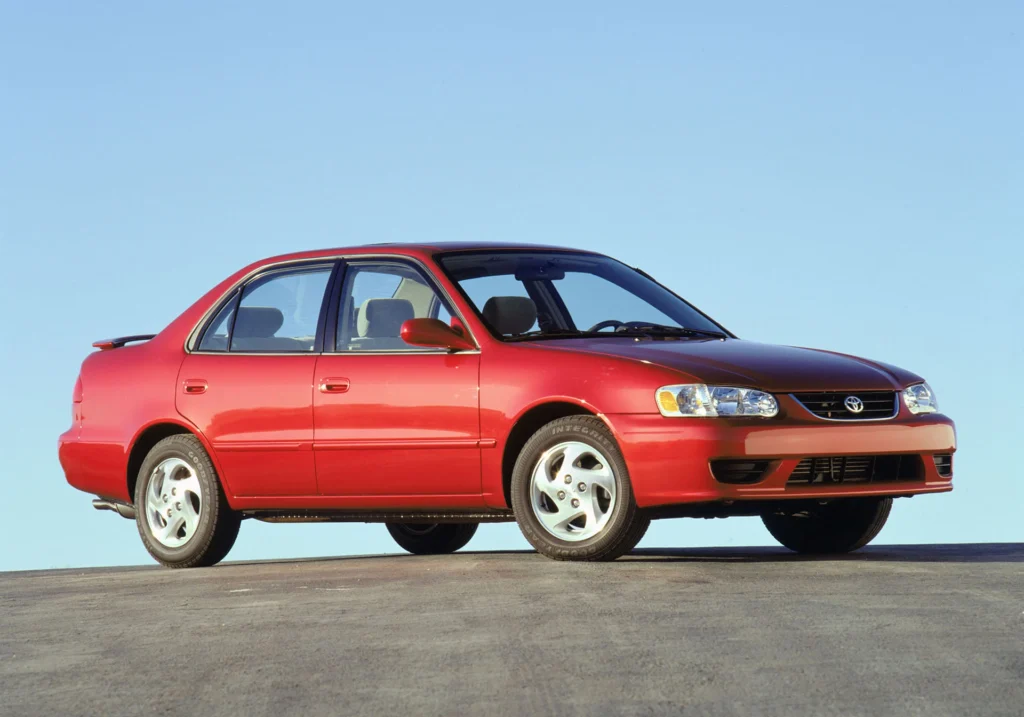
The Best Years: 2000, 2001, 2002
Often praised for their improved engineering and feature offerings, Toyota Corolla models from 2000 to 2002 are regarded as the best of the first generation.
In this series, the 1.8L 1ZZ-FE VVT-i engine provided good performance and fuel efficiency, averaging 27 mpg in the city and 34 mpg on the highway.
Various transmission options are available, such as an automatic and a manual, to suit the needs of different drivers.
S trim level features sportier design elements than CE, LE, or S trim levels, with the LE and S trims providing a diverse range of comfort and aesthetics.
In addition to introducing advanced airbag systems and improved braking mechanisms, these years also saw technological advancements.
There were, however, some issues with these models. It was common these years to consume excessive amounts of oil, although less so than in the past.
The Worst Years: 1998, 1999
According to NHTSA’s owner complaints, you should avoid buying Toyota Corollas in 1998 and 1999 due to engine and powertrain problems.
Corolla models from 1998 and 1999 were plagued with several problems that negatively impacted their reputations. It was common to hear complaints about engine problems, specifically oil leaks.
Besides posing potential long-term damage risks, this damaged the Corolla’s reputation as a reliable vehicle.
The braking system also exhibited grinding noises when brakes were applied, suggesting potential problems.
The list of problems was further expanded by failures of the power steering unit. Despite their affordability and efficiency, these problematic years posed significant challenges for owners, making them less recommended in retrospect.
Complaints and recalls for Toyota Corollas from 1998 and 1999 can be found at the NHTSA website.
Best & Worst Years for Toyota Corolla 9th Generation (2003-2008)
In 2003, Toyota unveiled its ninth generation of the Corolla, illustrating its commitment to staying ahead of the competition.
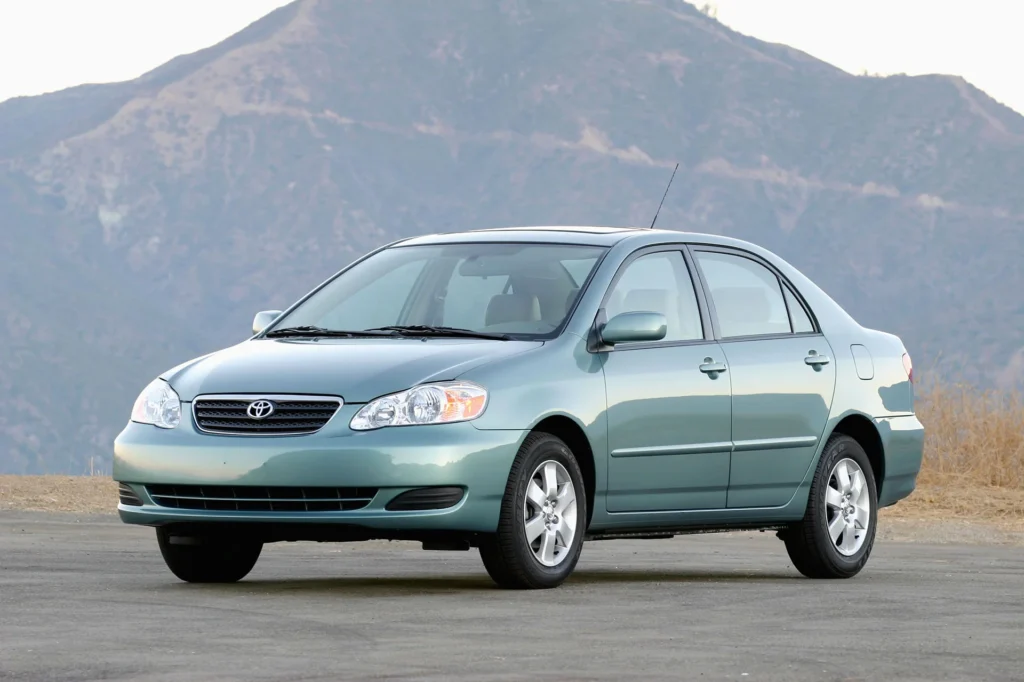
You should avoid Toyota Corolla years 2003, 2004, and 2006. During Carolla’s ninth generation, 2007 and 2008 were her best years.
The Best Years: 2007, 2008
The best 2007 and 2008 model years reflect Toyota’s commitment to refining the Corolla, with fewer complaints and recalls.
2007 and 2008 Toyota Corollas were equipped with the 1.8L 1ZZ-FE engine, which delivered 26 city mpg / 35 highway mpg when combined with a 5-speed manual transmission.
There was a wide selection of trims available to meet the needs of different consumers, including the CE, LE, and sporty S trims.
In addition to side-curtain airbags, enhanced safety features were introduced during these years.
Even after recalling earlier Engine Control Modules (ECMs), Toyota still experienced sporadic AC malfunctions with these models.
The story of Starbucks is one of passion and vision. It began as a simple coffee shop and grew into a global phenomenon. This journey is marked by key moments and decisions that shaped its path.
The Neutral Years: 2005
What is the best car to buy in 2005? This year’s Toyota Corolla model served as a transitional phase with decent performance.
However, this year’s Engine Control Module (ECM) malfunctions, which led to frequent illumination of the “Check Engine” light and, worse-case scenarios, caused the engine to stall, even though it remained equipped with the same 1.8L 1ZZ-FE engine and transmission options.
Its less favored siblings suffered from a variety of issues, yet this model year didn’t.
It appears that Toyota addressed significant concerns through the various recalls, especially concerning the ECM for 1ZZ-FE engines.
The Worst Years: 2003, 2004, 2006
Toyota Corolla owners should avoid 2003, 2004, and 2006 because of the highest number of owner complaints and recalls registered by NHTSA.
Consumers weren’t happy with the 2003 and 2004 Toyota Corollas because of oil leaks, transmission problems, and internal noises.
Furthermore, although the 2006 Toyota Corolla model was improved from its immediate predecessors, it was plagued by engine problems.
In some instances, owners reported that their engine stalled when the ECM malfunctioned, causing the “Check Engine” light to illuminate.
It was disappointingly common to have problems with air conditioners and transmissions during these years, which made these years less recommendable.
Toyota Corolla complaints and recalls from 2003, 2004, and 2006.
Best & Worst Years for Toyota Corolla 10th Generation (2009-2013)
This tenth-generation Toyota Corolla introduced more modern styling cues and upgraded technology, making it more reliable and economical than ever before.
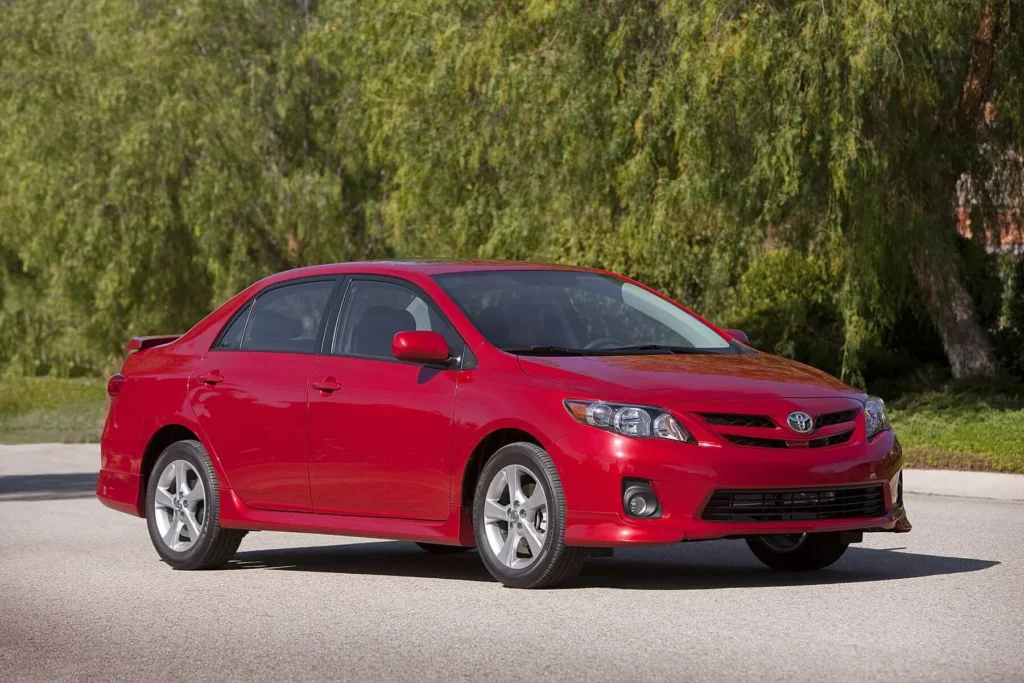
It is best to avoid Toyota Corolla years 2009 and 2010 when it comes to the tenth-generation model.
The Best Years: 2012, 2013
Several improvements were made in the tenth generation Toyota Corolla’s best years – 2012 and 2013.
There was a 1.8L 2ZR-FE engine in most 2012 and 2013 Toyota Corolla models, which was coupled with either a 4-speed automatic or a 5-speed manual transmission.
In terms of fuel economy, these powertrains averaged 27 mpg in the city and 33 mpg on the highway.
With additions such as electronic stability control and improved braking, safety was not forgotten.
While these models were well-regarded, there were reports of sporadic excessive oil consumption, even with these well-regarded models.
Consumer Reports and J.D. Power have nonetheless been extremely well received in these years.
The Neutral Years: 2011
Transitional refinement exemplifies the 2011 Toyota Corolla.
The 1.8L 2ZR-FE engine and transmission options were retained from the previous generation, which ensured reliable performance and excellent fuel economy.
Toyota improved its navigation and audio systems on the technological front.
Even though it was an enormous leap forward, there were no setbacks. Electronic Control Module (ECM) issues have been reported by owners, resulting in unexpected stalling.
As a result, the 2011 model is considered neutral due to Toyota’s prompt response in the form of service bulletins and recalls.
The Worst Years: 2009, 2010
Toyota Carolla models from 2009 and 2010 are good cars, right? I don’t. There are over 1000 complaints against Toyota Corollas on NHTSA for the years 2009 and 2010, so it is wise to avoid these Toyota Corolla years at all costs.
There were many problems with the 2009 and 2010 Toyota Corolla models, including overheating and unintended acceleration.
There were significant safety risks associated with the loss of power steering assist. The Electronic Control Module (ECM) malfunctioned and the gears slipped frequently.
In addition, a sticky accelerator pedal and obstructed brake vacuum intake ports were recalled due to safety concerns.
Consumer Reports assigned the lowest reliability and owner satisfaction scores to these model years because of these concerns.
Recalls and complaints about Toyota Corollas from 2009 and 2010 can be found on the NHTSA website.
Best & Worst Years for Toyota Corolla 11th Generation (2014-2019)
Toyota’s 11th generation Corolla marks a significant departure from previous models, adopting a modern and aggressive design.
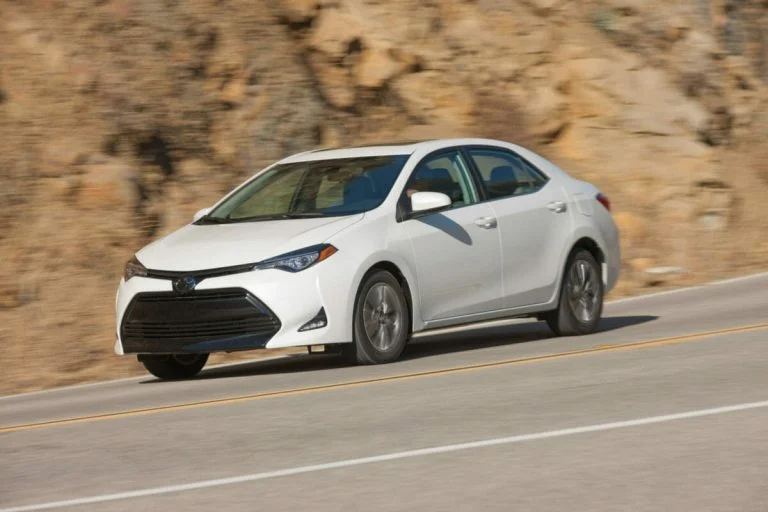
In the eleventh generation of the Toyota Corolla, 2016-2019 represent its best years. There is only one Toyota Corolla model year of the generation you should avoid: 2014.
The Best Years: 2016, 2017, 2018, 2019
Which year of Toyota Corolla is the most reliable? Based on our research with Consumer Reports, we’ve found that the 2016-2019 Toyota Corolla model years were the most reliable.
With an innovative valvematic system, the 1.8L 2ZR-FAE engine was very powerful during these years.
Featuring a Continuously Variable Transmission (CVT) or a six-speed manual transmission, these models offered impressive fuel efficiency, averaging 28 mpg in the city and 36 mpg on the highway.
The Corolla’s safety ratings were raised due to enhanced safety features, such as Toyota’s Safety Sense-P suite. Enhanced cabin materials and a revamped infotainment system were also included as interior luxuries.
The Neutral Years: 2015
Toyota’s 2015 Corolla was commendable, but it was eclipsed by its successors.
It retained the 1.8L 2ZR-FAE engine from its predecessor and largely mirrored its powertrain configurations.
Although advanced safety options were somewhat limited, improved dashboard ergonomics and a backup camera were welcomed improvements.
Unfortunately, it was unable to reach the heights of the subsequent models due to transmission glitches and infotainment system problems.
The Worst Years: 2014
In light of the comparatively higher number of owner-registered complaints in 2014, we consider it to be the worst year of the generation for Toyota Carollas.
Several drivers reported transmission problems in the 2014 Toyota Corolla, including hesitation, jerking, and unintended acceleration.
Informationtainment issues included touchscreen malfunctions, which caused occasional frustration.
With a fresh design and technological promises, the Corolla attempted to set a new standard, but the problems mentioned above marred those efforts.
As a result of Toyota’s swift response, there is no doubt that it is committed to quality and customer satisfaction.
Recalls and complaints related to the 2014 Toyota Corolla can be found at the NHTSA website.
Best & Worst Years for Toyota Corolla 12th Generation (2020-Present)
With the 12-generation Toyota Corolla, Toyota promises improved stability, handling, and ride comfort thanks to the TNGA (Toyota New Global Architecture) platform.
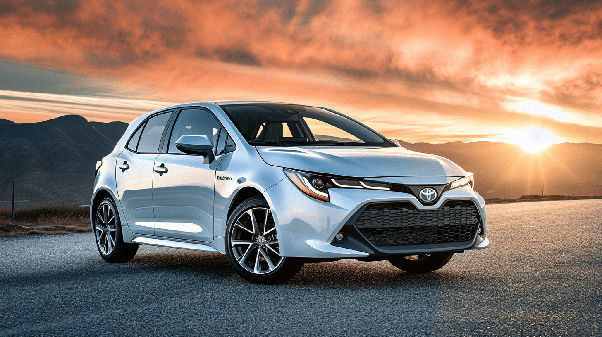
Based on reliability ratings, 2020 was the least reliable year of the generation, while 2021-2024 marked the best and most reliable years for Toyota Carolla.
The Best Years: 2021, 2022, 2023, 2024
During the best years of the twelfth-generation Toyota Corolla, from 2021 onwards, Toyota refined the car’s offerings, especially its powertrains.
Its 2.0L Dynamic-Force 4-cylinder engine paired with a Direct Shift-CVT engine emerged as one of the most popular options, delivering 31 mpg in the city and 40 mpg on the highway.
Some trims were equipped with a 6-speed Intelligent Manual Transmission (iMT), which was praised for its engaging driving experience.
Adaptive cruise control, lane departure alerts, and pre-collision systems are among the advanced safety features from Toyota’s Safety Sense 2.0.
Several connectivity options, including Apple CarPlay and Android Auto, transformed the cabin into a technological paradise.
As a result of these refinements, the Corolla’s place as a leading compact sedan was further elevated in 2023 and 2024.
The Worst Years: 2020
In spite of its revolutionary aspirations, Toyota Carolla’s worst year of the generation was 2020.
A redesigned interior and advanced driver-assist technology were among its best features, but it wasn’t without faults.
Several drivers reported that the CVT performed poorly and that the infotainment system had minor glitches.
Furthermore, platforms such as J.D. Power and Consumer Reports gave it lower ratings, perhaps because of these teething problems.
Although essential to future refinements, this year’s launch faced challenges common to a new generation’s first year.
Toyota Carolla recalls and complaints from the NHTSA for 2020.
Common Toyota Corolla Problems
There have been multiple issues with the Toyota Corolla across model years despite its legendary reliability. The following are the most common Toyota Corolla problems:
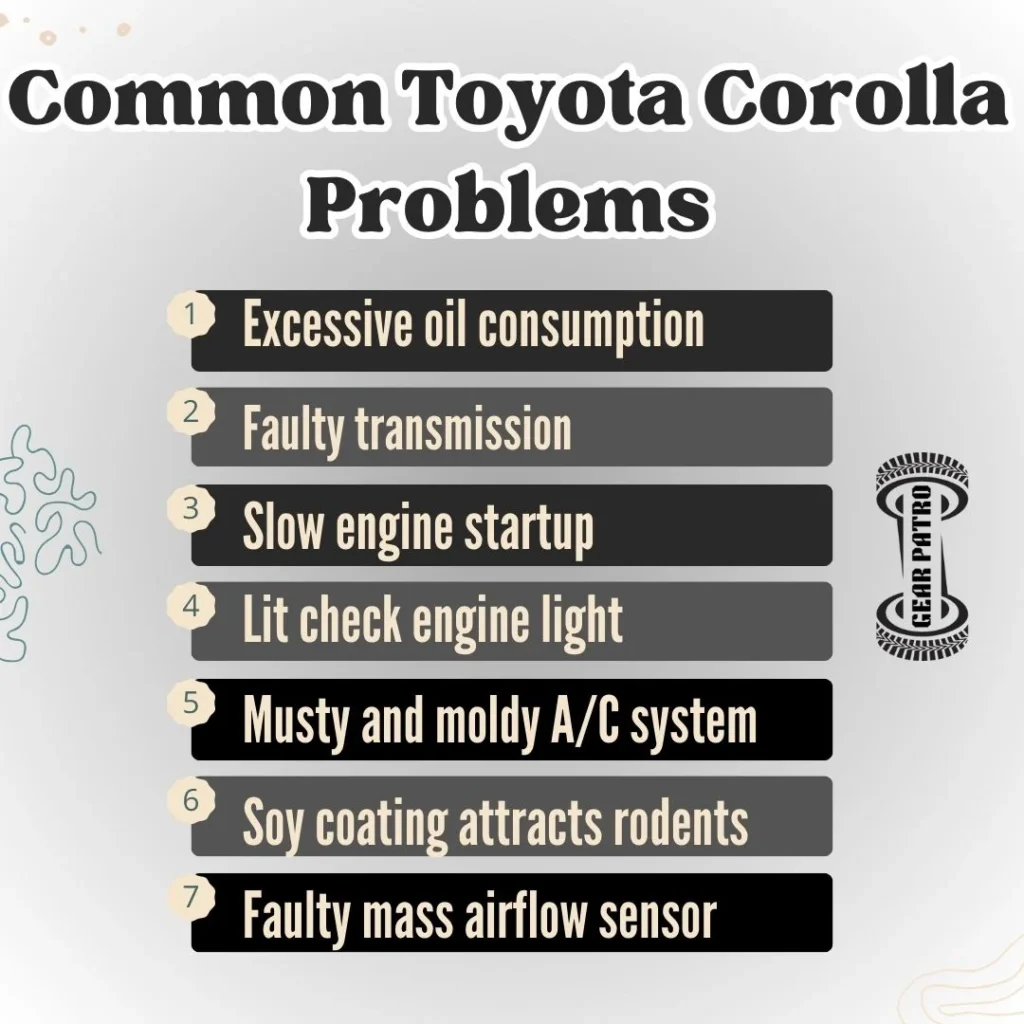
Excessive oil consumption
Oil consumption has been reported as too high in Corolla engines. Even with a barely new vehicle, oil issues have mainly plagued 2002 and 2009 models. The most expensive fix is an engine replacement, which costs $2,600 to $5,000. Thicker oil can be used, piston rings can be replaced, and thicker oil can be used.
Faulty transmission
Transmission failures occurred despite regular maintenance for Corolla owners. Many reports describe clunking and grinding sounds before a car stops. There are more transmission failures in 2003 Corollas than any other year. In most cases, the transmission must be rebuilt or replaced, which may cost up to $1,200.
Slow engine startup
There have been reports of slow starting in some Corollas. There is a tendency for this problem to occur after 100,000-125,000 miles. Generally, a faulty starter is to blame, so the solenoid needs to be replaced. Corollas from 2015 are most likely to suffer from this problem.
Lit check engine light
This issue typically occurs in 1998-2016 Corollas because of the evaporative emission control system (EVAP). There are a number of potential causes, including faulty gas caps and faulty charcoal canisters.
Musty and moldy A/C system
HVAC systems were defective in many Toyota vehicles. When you smell moldy or musty air coming from the A/C, this is the worst possible scenario. This has a negative effect on the interior air quality, as well as on the health of the occupants who are exposed to the musty odor.
Older Corollas are especially prone to this problem, as are Toyota vehicles from the 2009 model year. In a lawsuit, Toyota claims that its air conditioning systems do not properly remove water from their evaporators and enclosures.
Soy coating attracts rodents
As part of Toyota’s efforts to be more eco-friendly, soy-coated electrical wire coatings were used. This coating is also less expensive than copper coatings. It was nonetheless highly sought after by rodents for nest building that soy materials were used. Since it’s not covered by warranty, owners have had to pay between $2,000 and $9,000.
Faulty mass airflow sensor
A mass airflow sensor was reportedly defective in Corolla models from 1998 to 2010. There is a need to clean the sensors more frequently or otherwise, the vehicle’s acceleration and performance will suffer. Additionally, the check engine light may be triggered by the issue. Usually, the sensor needs to be replaced.
Best & Worst Toyota Camry Years | Years To Avoid
Best & Worst Toyota RAV4 Years (Years To Avoid)
Best & Worst Toyota Highlander Years | Years To Avoid
Best & Worst Toyota Tacoma Years | Years To Avoid
Best & Worst Toyota Sienna Years | Years To Avoid
Best & Worst Toyota Tundra Years | Years To Avoid
Best & Worst Toyota 4Runner Years | Years To Avoid
Best & Worst Toyota Sienna Years | Years To Avoid
Best & Worst Toyota Prius Years | Years To Avoid
Frequently Asked Questions
Which Toyota Corolla years should I avoid buying as used?
You should avoid Toyota Corolla models from 2000, 2001, 2002, 2003, 2009, and 2014. It has been identified that these models are more prone to excessive oil consumption, transmission problems, and other problems related to reliability.
What are the main problems reported with the Toyota Corolla models from 2000 to 2009?
Between 2000 and 2009, Toyota Corolla models, especially those produced in 2002 and 2009, frequently consumed excessive amounts of oil. Furthermore, the 2009 model was also plagued by transmission problems, and the 2003 model was plagued by problems with water pumps, which led to cooling system problems.
Is there a Toyota Corolla year known for having the most problems, and what are they?
Toyota Corollas are notorious for experiencing a variety of problems, such as excessive oil consumption and water pump failures. The vehicle’s reliability and cost of repair could be adversely affected by these issues.
What common problems should potential Toyota Corolla owners be aware of?
Toyota Corolla owners need to be aware of issues like excessive oil consumption, faulty transmissions, slow engine startup, illuminated check engine lights, musty air conditioning systems, soy coatings that attract rodents, and faulty mass airflow sensors.
Are Toyota Corollas typically reliable?
The Toyota Corolla has a reputation for being bulletproof. More than 50 million of them have been sold worldwide, making it one of the most dependable and efficient vehicles on the market. Don’t buy any Corolla though (hint: some years from the 2000s are problematic). Just don’t buy any Corolla.
How much does a used Toyota Corolla typically cost?
In a second-hand auto market impacted by a tight supply and higher interest rates, a solid reputation often translates into higher prices for a used car like the Corolla. Compared to before the COVID-19 pandemic, used Corollas are more expensive now. According to CoPilot Price Pulse, the average price of a 2009 Toyota Corolla is $8,939.
There might be a half-price difference in normal times. There are still high prices associated with newer examples. It costs $20,113 to buy a 2019 Corolla. In a regular market, the car’s value would be about one-third higher.
Is the Toyota Corolla a good car to purchase?
If you’re looking for reliable transportation without having to spend a fortune on repairs and maintenance, the Toyota Corolla is the perfect vehicle. For a more enjoyable ownership experience, you should also learn about the most reliable years of the Toyota Corolla.
Conclusion
The Toyota Corolla’s journey since 2008 stands out as the top Toyota Corolla years because of their blend of performance, design, and reliability, making them the top picks for potential buyers.
What was the best or worst year to own a Toyota Corolla?
Comment below with your stories and insights!
